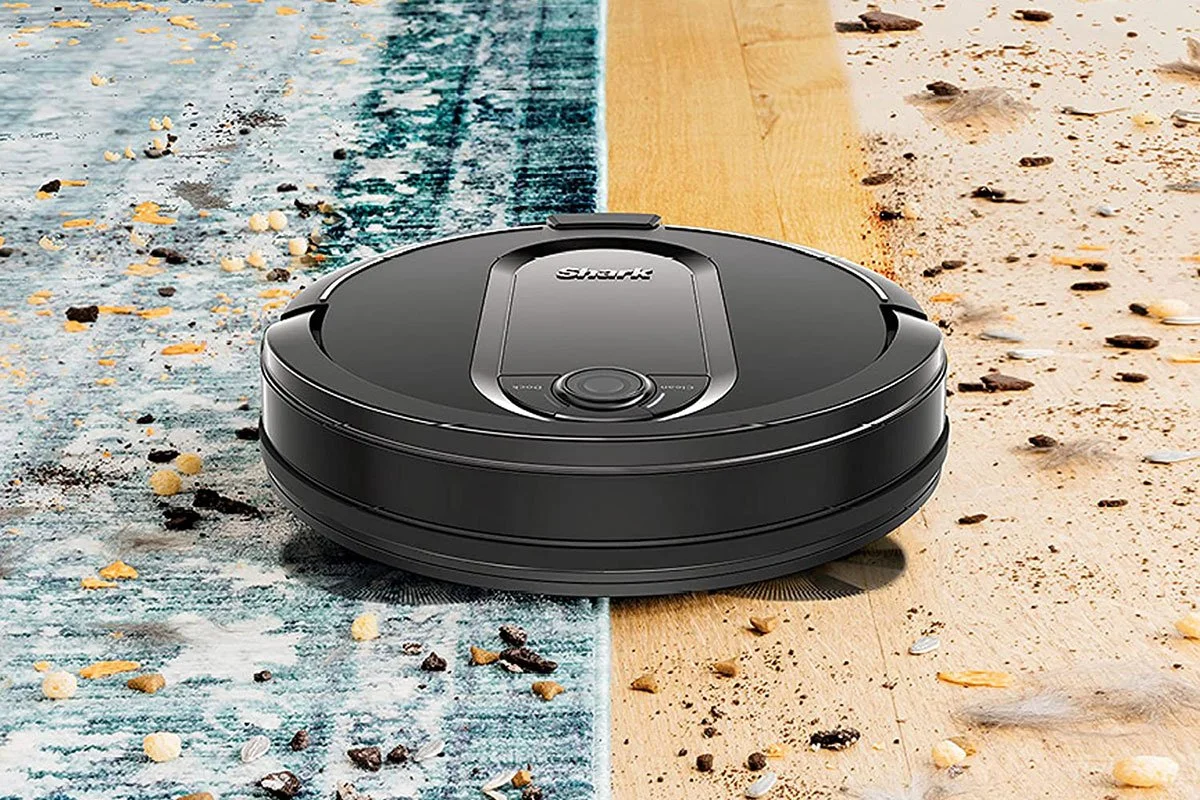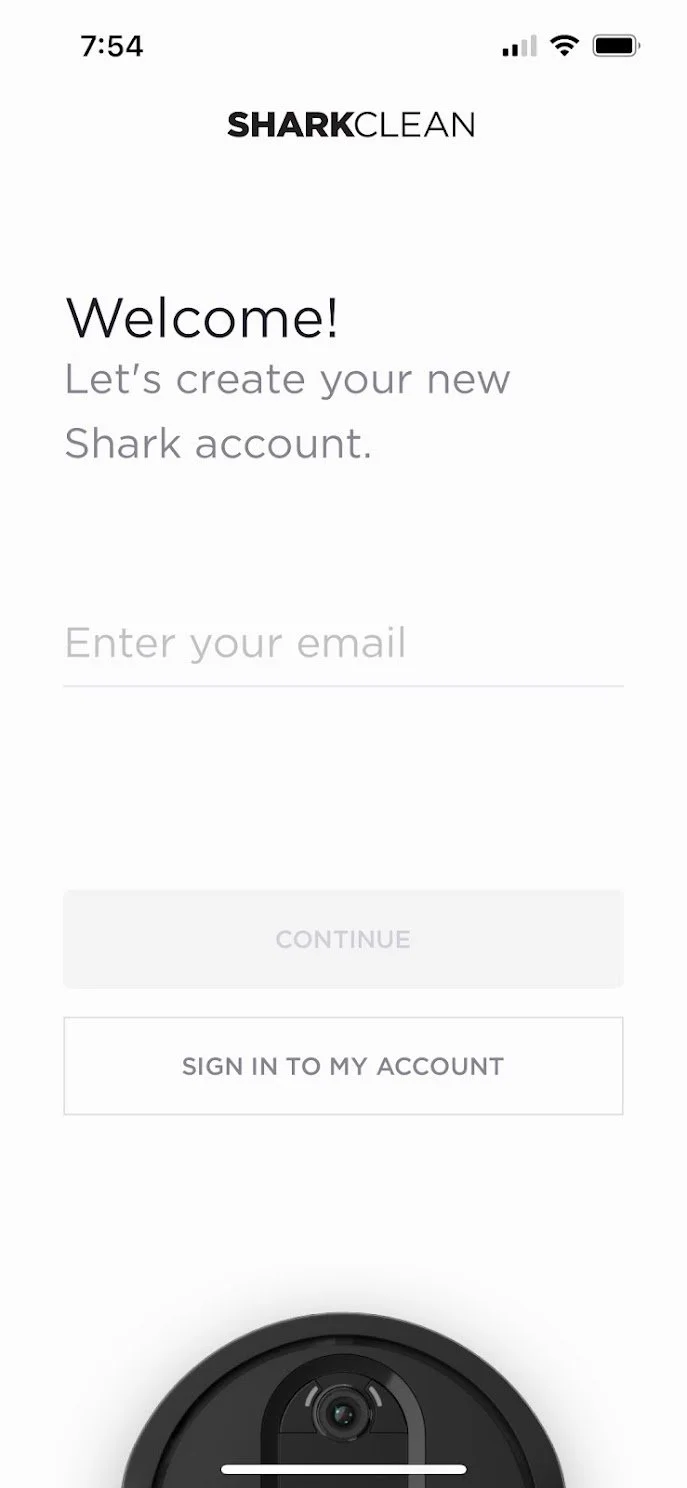Connected Robot Vacuum Account Creation
Client: SharkNinja
Overview
Role | UX Researcher
Research Method | Usability Testing
Tools | Figma, Microsoft Teams, Microsoft Excel, Microsoft Powerpoint
Client | SharkNinja
Scroll ↓
Background
SharkClean is the connected app for all Shark robot vacuums that allows users to control and schedule their vacuum robot. Account creation is a vital portion of the onboarding experience for the connected product.
My Role
As the UX Researcher, I recruited participants, crafted a discussion guide, led usability testing, analyzed notes, and shared distilled impactful insights with the design, engineering, and product teams.
Discovery
Research Goals
Previous research conducted by the UX research team informed a new iteration of account creation designs. User feedback indicated that account creation and email confirmation in particular was a pain point in the robot onboarding experience, so I wanted to see how these new designs would resonate with users. I focused on the following research goals:
Understand user perceptions and expectations for first-time account creation methods
Evaluate if the sign-in and authentication process aligns with users’ expectations
Research Method & Participant Qualifications
After I had a bigger picture understanding of the problem, I knew that usability testing would be the best method to evaluate these new designs. I wanted to hear from users who had a recent experience with account creation to get comparative feedback.
Moderated Usability Study
8 participants
30-minute remote sessions
Microsoft Teams meeting using screen sharing and live video
Participant Qualifiers
Created an online account in the past 2 months
Mix of existing app users and non-experienced users
Preparing Testing Stimuli
Next, I began to prepare for the usability testing session. I collaborated with our external design team to refine a Figma prototype to focus on key usability moments and formed a cohesive narrative. This was the first time SharkNinja had collaborated with this design firm, so it was important to establish a testing cadence.
I identified 4 key tasks for the user to complete and crafted a discussion guide with open-ended questions designed to kick off the conversation flow.
Analysis
After conducting user interviews, I reviewed recordings of my interviews and analyzed notes taken during testing using Microsoft Excel. I centered my analysis on task completion and key areas of confusion.
Key Insights
Sharing Results
I synthesized the key insights from my research and presented them along with an informative Powerpoint to the UX design team, product team, and software developers. SharkNinja’s company culture values brevity as key research results is reported out to executive suite level so a high-level overview Powerpoint was my chosen method of communication.
Business Impact
Informed decision to move forward with implementing account creation designs
Drove design iterations to increase the usability of account creation
Reduced user friction by decreasing time to task completion and clarifying copy
Reflections
What Went Well
Clear actionable insights which led to design modifications
Business was able to prioritize other key roadmap items
Challenges:
Navigating internal participants who had a background with the product
First time working with a new design firm, understanding the best cadence for research readouts and expectations for prototype layouts
With More Time I Would:
Conduct another round of usability testing on iterated designs
Test these designs with external participants



